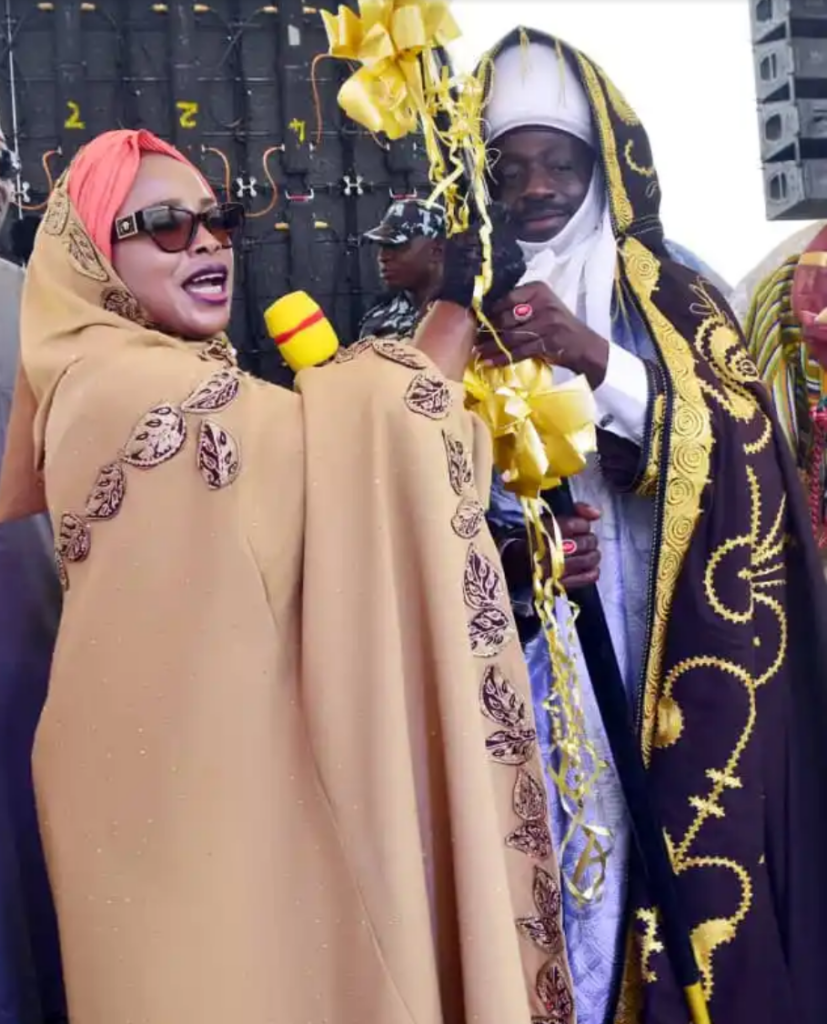The Federal Capital Territory Minister of State, Dr Ramatu Aliyu, on Saturday in Bwari Area Council of the territory presented a Staff of Office to Sarkin Bwari, Alhaji Awwal Ijakoro II, who was crowned by the kingmakers.
Aliyu, while presenting the staff of office of the traditional ruler, recommended continued involvement of the traditional institutions in nation-building.
This, according to her, will create conditions for more effective and efficient peace building, and conflict prevention initiatives in the country.
She explained that the Staff of Office was a symbol of authority and an instrument to promote peace building and conflict management, especially in the face of increasing insecurity in various parts of the country.
The minister warned that the FCT Administration would not spare any traditional ruler that failed to live up to this expectation, including those aiding and abeting criminality in their domains.
“It is not in our character, no matter the level of enticement, to betray the trust bestowed on us. As traditional rulers and the custodians of our traditions, this obligation is even more fundamental.
“Indeed, any betrayal of public trust shall stand condemned and will not be acceptable in the seat of Government where President Muhammadu Buhari is the Governor-General.”
The minister, however, noted that the roles of traditional rulers would not be possible without constitutionally acknowledging their relevance.
Aliyu, therefore, called on the three tiers of government to pass legislations that recognised the country’s traditional rulers as stakeholders and instruments of conflict management and peace building.
The minister revealed that the crowned Sarkin Bwari was the 5th Sarki who emerged following the demise of his father on August 25, 2017, after a successful 41-year reign.
She also stated that in the collective resolve and respect for traditional institution, the FCT Administration conveyed a letter of appointment to Ijakoro II as a 2nd Class traditional ruler and the 5th Sarkin Bwari, in October 2017.
” Today’s ceremony is to, on behalf of the FCT Administration, formally present the staff of office to Sarkin Bwari in continuation of the legacies of his forebears.
She said the event was in the hope that he would provide good leadership, respect constituted authorities and promote harmonious relationships and respect for all tribes and inhabitants of Bwari community and its environs.
She reminded the graded chiefs and district heads that traditional rulers in both pre-colonial and post-colonial eras contributed immensely to the formation, extension, greatness, and promotion of good relationships among different kingdoms and empires across Nigeria.
” The traditional institutions did make possible, great cohesion and sustained the development of political institutions that governed hitherto diverse peoples.
“I want to state unequivocally that with respect to social control, peace and conflict management, there is a strong body of evidence that traditional rulers, though of varied cultures and backgrounds, remain strikingly relevant in our society.
” I, therefore, recommend continued involvement of our traditional institutions in nation-building efforts to create conditions for more effective and efficient peace building, peace-making and conflict prevention initiatives in Nigeria.”
Earlier, the Mandate Secretary FCT Area Council Services Secretariat, Alhaji Ibrahim Dantsoho, described the event as significant in the history of Bwari chiefdom, while charging the new Sarkin Bwari on safety and security of his domain.
Dantsoho, who urged the traditional ruler to work with other royal fathers in the territory, commended the kingmakers of Bwari chiefdom and the chairman of Bwari Area Council for the peaceful selection process leading to the event.
The occasion was graced by the Sultan of Sokoto, Sa’ad Abubakar III, who was represented by the Etsu Nupe, Alhaji Yahaya Abubakar, Chairman FCT Council of Chiefs and Ona of Abaji, Adamu Yunusa, and other first class traditional rulers from within and neighbouring states.
Wives of governor of Kebbi, Yobe, and Zamfarai states were also present.
